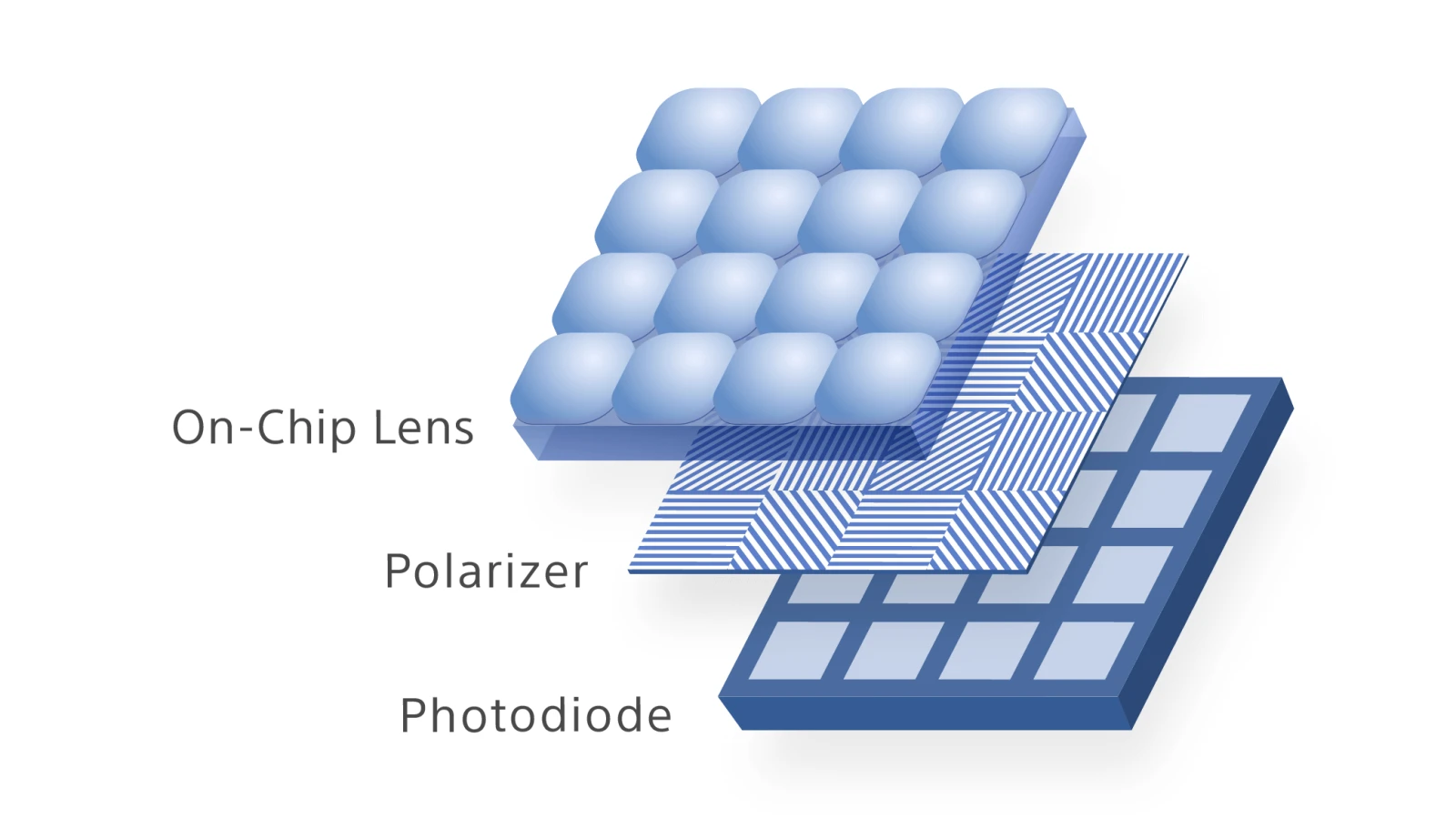This series of polarization image sensors has a multi-directional polarizer which is formed on top of the photodiode of the image sensor chip (On-Chip Polarizer). In addition to brightness and color*1 information, these image sensors can capture polarization information that cannot be detected by a conventional image sensors. They are expected to be used in many applications in the industrial fields, such as inspection when imaging and sensing are difficult.
*1) Color image sensors only
Sony’s polarization image sensor can capture a four directional polarization image in one shot by the four directional polarizer (Fig.1). It can calculate the direction and degree of polarization (DoP) based on the intensity of each directional polarization. Together with subsequent signal processing, it can capture the polarization information*2 in real time*3.
*2) Degree of Polarization and Direction of Polarization
*3) Subject to subsequent signal processing power

Industrial applications require imaging of fast-moving objects. However, conventional CMOS image sensors are unable to accurately identify fast-moving objects, due to the focal plane distortion, which is caused by the rolling shutter function. The IMX250MZR/MYR, IMX264MZR/MYR, IMX253MZR/MYR address this issue by providing an analog memory inside each pixel and realizing the global shutter function to enable high-picture-quality without focal plane distortion.
The column-parallel A/D conversion technology of Sony's CMOS image sensors is used to realize high-speed imaging of up to 163.4frame/s (ADC 8 bit) for the IMX250MZR/MYR, 35.7 frame/s(ADC 12 bit) for the IMX264MZR/MYR and 68.3frame/s (ADC 8 bit) for the IMX253MZR/MYR. Increased processing speed is used for industrial applications.
Region of Interest (ROI) Mode crops required areas. Up to 8 × 8 = 64 locations can be set with IMX250MZR/MYR, and 1 location with IMX264MZR/MYR. In addition to setting 8 × 8 = 64 locations, IMX253MZR/MYR provides greater freedom of specifying regions and allows overlap of specified regions. Various exposure methods are provided with the trigger mode, which controls the exposure time using an external pulse.
Light has physical elements : brightness (amplitude), color (wavelength) and polarization (vibration direction). Lights from direct sun or fluorescent lamps vibrate in various directions and is called unpolarized light.

Sony's polarization sensor has wire-grid polarizers. Parallel light against polarizer passes through it, while perpendicular light is cut off at the polarizer.
Find out more about the Polarsens technology.